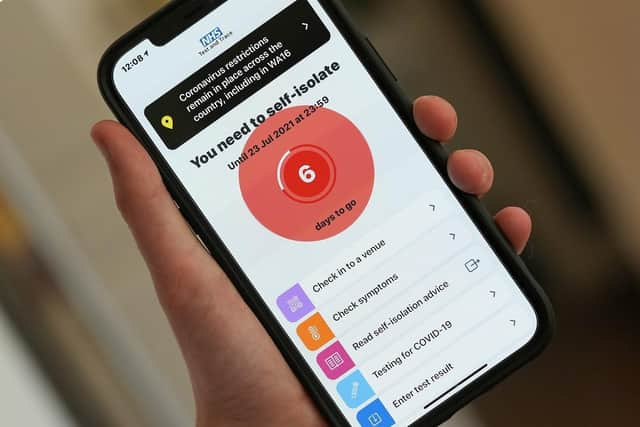When will Covid isolation be reduced to five days in England? Why has the UK Health Security Agency made this decision?
After careful consideration, the UK Health Security Agency (UKHSA) decided this would be a good way to support essential public services and workforces over the winter season.
What is the new Covid rule and when will it take effect?
People with Covid-19 who are self isolating will have the option to cut their isolation period to five days as long as they test negative on two lateral flow tests on day five and day six and do not have a temperature.


Advertisement
Hide AdAdvertisement
Hide AdIndividuals who are still positive on their lateral flow tests must remain in isolation until they have had two consecutive negative tests taken on separate days.
This will take effect from Monday, January 17.
Why has the UKHSA decided this?
This new update has been carefully examined and the UKHSA concluded that this will have a positive long term effect on essential public services and businesses over the winter season.
According to the UKHSA, it is vital that people with Covid-19 continue to isolate until they have received two negative lateral flow tests on two consecutive days to reduce the chance of still being infectious.
It is also important that if a person has tested negative on two lateral flow tests on consecutive days, they must report it before they return to work or school, if they are leaving their self-isolation earlier than the full 10-day period.
Advertisement
Hide AdAdvertisement
Hide AdThose who end their self-isolation period on or after day six are strongly encouraged to wear face coverings and limit close contact with other people in crowded or poorly ventilated areas, work from home if they can and minimise contact with anyone who is at higher risk of severe illness if infected with Covid.
The default self-isolation period is currently still at 10 days, and you may only leave self-isolation early if you have taken two lateral flow tests and do not have a temperature in line with the guidance.
Sajid Javid, health and social care secretary, said: “After reviewing all of the evidence, we’ve made the decision to reduce the minimum self-isolation period to five full days in England.
“These two tests are critical to these balanced and proportionate plans and I’d urge everyone to take advantage of the capacity we’ve built up in tests so we can restore more freedom to this country, whilst we are keeping everyone safe.”
Current public health measures still in place are:
- Staying home if you feel unwell.
- Getting a test if you experience any Covid-19 symptoms.
- Wearing a face covering in crowded, enclosed spaces.
- Working from home if possible.
- Maintaining social distancing and regular hand washing.
- Taking up the offer of the free Covid-19 vaccine.
Advertisement
Hide AdAdvertisement
Hide AdThose who work with vulnerable people may have to continue self-isolating for the current 10-day period. A full list of people who are expected to continue with the 10-day isolation period will be published in due course.
Comment Guidelines
National World encourages reader discussion on our stories. User feedback, insights and back-and-forth exchanges add a rich layer of context to reporting. Please review our Community Guidelines before commenting.